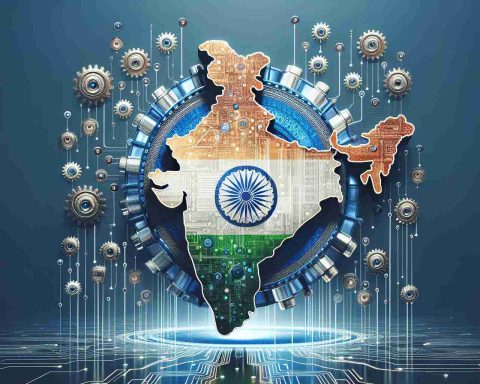The American steel industry is buzzing as U.S. Steel finds itself at the center of a mounting bidding war. Recently, Japan’s Nippon Steel proposed a substantial $14.9 billion acquisition offer, presenting a nearly 40% premium over U.S. Steel’s existing share price. However, this significant bid has encountered fierce opposition from politicians and the United Steelworkers (USW) union. Concerns about national security prompted President Biden to block the proposal, valuing each share at $55.
In a surprising turn, reports emerged about domestic steel giants Nucor and Cleveland-Cliffs potentially collaborating on their own bid for U.S. Steel. This news sent U.S. Steel’s stock soaring by 9.4% within hours, though the shares still lag behind Nippon’s initial offer. Analysts indicate that the combined bid from Cliffs and Nucor might land in the high $30s per share range.
Nippon’s offer originally appealed to shareholders as it included promises to maintain the U.S. Steel brand and its Pittsburgh headquarters, alongside a commitment to invest over $1.5 billion in modernization efforts. Meanwhile, recent developments indicate that Cleveland-Cliffs plans to buy U.S. Steel outright before divesting its Big River Steel subsidiary to Nucor, which shows keen interest in expanding its steel mill operations. As the situation unfolds, the fate of U.S. Steel remains uncertain, with potential winners yet to be determined in this competitive landscape.
Bidding Wars and the Future of American Steel: A Crossroads for Industry and Environment
The American steel industry is currently watching a high-stakes bidding war over U.S. Steel, with substantial implications for the environment, humanity, and the economy. The ongoing competition between international and domestic steel conglomerates, particularly the tension surrounding Nippon Steel’s $14.9 billion acquisition offer, raises critical questions about the future of manufacturing in the U.S. and its impact on the planet.
As U.S. Steel faces scrutiny with potential deals on the table, it is essential to consider how the competitive dynamics of this industry affect sustainability practices and environmental policies. The steel industry is notoriously resource-intensive, requiring vast amounts of energy and raw materials, leading to significant carbon emissions and resource depletion. The move to modernize steel production, as indicated by Nippon’s pledge to invest over $1.5 billion, suggests a potential shift toward cleaner technologies. If successful, these investments could reduce emissions, make the production process more sustainable, and align with global efforts to combat climate change.
Moreover, the involvement of domestic companies like Nucor and Cleveland-Cliffs highlights an important aspect of economic resilience and national security. By keeping steel production within the U.S., there could be a reduction in dependency on international suppliers, which often transport products over long distances, exacerbating fossil fuel consumption and environmental degradation. This self-reliance can foster innovation in sustainable practices, as domestic companies may be more amenable to adhering to stricter environmental regulations and implementing new technologies.
The steel industry’s trajectory influences not just economic stability but also job creation and labor rights, particularly concerning the United Steelworkers union’s opposition to the Nippon bid. Protecting jobs in this critical sector is paramount for many communities that rely on steel manufacturing. A fair balance must be struck to ensure that while companies aim for profitability and growth, they also honor the livelihoods of workers and the environmental standards that safeguard communities.
Looking forward, the future of humanity is interconnected with how industries like steel navigate these challenges. The outcomes of these bidding wars may shape the regulatory landscape, influence global supply chains, and dictate trends in consumption. As stakeholders prioritize sustainability, there is a crucial opportunity for the steel industry to pivot towards greener practices through strategic investments and innovative technologies.
In summary, the unfolding drama of U.S. Steel presents a moment for reflection on the industrial landscape of America. The decisions made in the coming weeks and months will have profound implications not only for the economy and labor but also for our environmental future. The steel industry stands at a crossroads; how it chooses to evolve could define a sustainable path forward for generations to come.
Steel Industry Showdown: Battle for U.S. Steel Heats Up Amid Political Tensions
U.S. Steel Acquisition Wars: A Comprehensive Overview
The American steel industry is in a state of flux as the bidding war for U.S. Steel intensifies. With strong offers and political backlash, the landscape is changing rapidly.
Latest Developments
Japan’s Nippon Steel made headlines with its $14.9 billion acquisition proposal for U.S. Steel, which boasted a nearly 40% premium over the company’s share price. However, President Biden’s intervention regarding national security led to the blocking of this proposal, further complicating matters for Nippon Steel. Each share was valued at $55 in this highly contested scenario.
Potential New Players in the Game
Recently emerged reports suggest that major domestic steel companies Nucor and Cleveland-Cliffs are considering joining forces to bid for U.S. Steel. This potential collaboration generated a significant market reaction, with U.S. Steel’s stock jumping by 9.4%. Despite this surge, shares remain below Nippon’s initial offer, with market analysts predicting that a combined bid from Nucor and Cleveland-Cliffs could reach the high $30s per share.
Key Comparisons of Acquisition Offers
– Nippon Steel’s Offer:
– Value: $14.9 billion, offering $55 per share.
– Benefits: Commitment to invest over $1.5 billion into modernization and maintenance of U.S. Steel’s brand and headquarters in Pittsburgh.
– Nucor and Cleveland-Cliffs’ Potential Bid:
– Projected Value: High $30s per share.
– Strategy: A possible acquisition followed by divestment of Cleveland-Cliffs’ Big River Steel to Nucor, enhancing operational capacity.
Pros and Cons of the Acquisition Proposals
– Pros:
– Nippon’s bid promises significant investment into modernizing U.S. Steel.
– Nucor and Cleveland-Cliffs’ potential partnership may lead to a more competitive domestic steel market.
– Cons:
– Political risks, including national security concerns, could derail international acquisitions like Nippon’s.
– Shareholders might receive less value from a domestic bid compared to Nippon’s premium offer.
Market Insights and Trends
The outcome of this acquisition battle comes at a significant time as the steel industry faces challenges such as fluctuating demand, rising input costs, and competition from foreign markets. As the negotiations and strategic moves develop, the implications for job security, market stability, and U.S. manufacturing capabilities grow increasingly relevant.
Future Outlook and Predictions
Analysts predict that the ongoing competition may push U.S. Steel to reconsider long-term strategies, particularly as domestic manufacturing aims to bolster its share of the market. Possible alliances among major players like Nucor and Cleveland-Cliffs could reshape the future of the American steel industry, emphasizing the need for cooperation and innovation to thrive.
For more detailed insights into the steel industry and current market trends, visit Steel.org.













